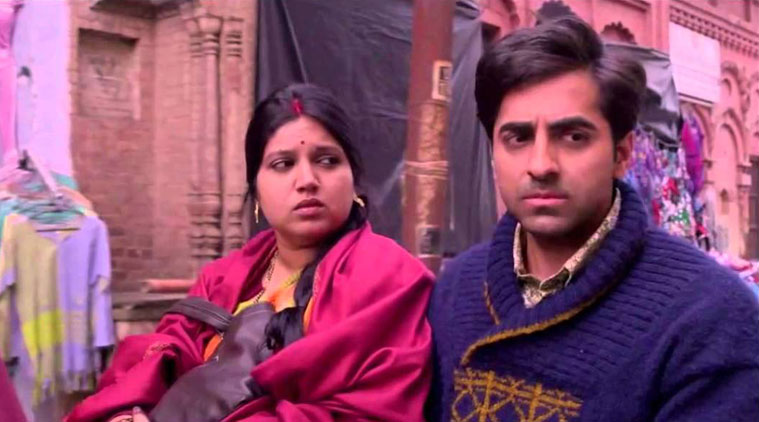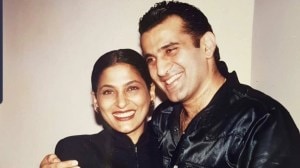Click here to follow Screen Digital on YouTube and stay updated with the latest from the world of cinema.
Big is beautiful
Films like Dum Laga Ke Haisha are effective sensitising the audience to women's issues
 Thoughtful and sensitively written films like Dum Laga Ke Haisha are effective in sending out the right message about gender equality and sensitising the audience to women’s issues, big and small
Thoughtful and sensitively written films like Dum Laga Ke Haisha are effective in sending out the right message about gender equality and sensitising the audience to women’s issues, big and small
Women’s Day is just around the corner and that a film called Dum Laga Ke Haisha has a newbie, Bhumi Pednekar as its heroine who fits into the large size is good news and a fitting offering. At the very outset, let me assure you that Pednekar has an arresting face and is a fine actress, but let’s admit, Hindi film heroines at worst, are meant to be buxom, and not bona fide ‘moti’. Although by the end of the film, size does not matter and you find yourself rooting furiously for her.
Fat women, more than fat men in cinema have been the butt of jokes since time immemorial. Recall Tun Tun of yesteryears who was always roped in to get people rolling in the aisles? Decades later came the loud Guddi Maruti but they were character actors, at best. Although in earlier times, the audience was certainly more accepting of excess adipose, strangely enough that never came in the way of male stardom.
Several south heroes would qualify that claim and perhaps a handful from the Hindi films, of yore too, but of late, they too are a rare sight. Hopefully, Dum Laga Ke Haisha a sweet and compelling film about an oddball couple—an uneducated young man Prem (Ayushman Khurrana) and Sandhya, an overweight girl whose finest virtue is her education—could change the narrative of the heroine.
The movie, alt ough hinged on the undesirability of fat people touches upon weightier issues too. Sure, a lot of people may wonder what the fuss is all about, but check on the subject with women who have been rejected by potential lovers or husbands over being “fat”, and you’d figure why it’s an important statement and a great step forward in the gender-equality stakes.
There is no braburning feminism here, just simple questions of being treated with dignity and being seen as more than a means to a reproductive and commercial end. Sandhya, although she has far better prospects than Prem, is being constantly reminded of her good fortune for just being able to get married.
Or the fact that no matter how nasty an unreasonable the husband may be, the onus of being the voice of reason always rests with the woman. Sandhya’s refusal, after her enthusiastic attempts at conjugal bliss are spurned, to settle for a life as door-mat is empowering without being preachy.
The message it sends out is loud and clear—women must seize control of their own lives in order to be taken seriously. But there’s also a little something about the virtues of patient and good advice, so essential to a good marriage which makes the underlying thought endearing, notalienating. DLKH follows faithfully in the footsteps of earlier attempts like English Vinglish and Queen and leaves you equally impressed.
- 01
- 02
- 03
- 04
- 05


































